Become a Sleep Coach: 6 Certification Programs & Methods
 These days you can find a coach for almost anything.
These days you can find a coach for almost anything.
There are life coaches, business coaches, performance coaches, and health coaches.
But have you heard of a sleep coach?
They perform an essential role in reestablishing good sleep for struggling people.
The American Academy of Sleep Medicine (2020) reported that 85% of American adults do not get the recommended amount of sleep (seven hours or more) each night.
If you would like to know more about this fascinating area of work and develop a career in sleep coaching, please read this article bursting with information on certifications, programs, courses, and books on becoming a sleep coach.
Before you start reading, we thought you might like to download our three Stress & Burnout Prevention Exercises (PDF) for free. These science-based exercises will equip you and those you work with, with tools to manage stress better and find a healthier balance in your life.
This Article Contains:
What Do Sleep Coaches Do?
Sleep is essential to recover and ward off disease and illness (Vorvick, 2020). The body and mind cannot function effectively without sleep, and a lack of sleep can cause cognitive and behavioral impairment (National Institute of Neurological Disorders and Stroke, 2019; Worley, 2018).
Better sleep allows for better skin and health, emotional regulation, decreased risk of stroke and heart disease, fewer accidents, enhanced immune system, a faster rate of metabolism, decreased pain, stronger bones, lower risk of Alzheimer’s disease and cognitive decline, and longevity (Worley, 2018).
There are many potential benefits to your clients after a good night’s rest, and they are likely to appreciate your skills as a sleep coach in helping them get those precious 40 winks.
Most adults need between seven and nine hours of sleep per night (Watson et al., 2015). Many factors can inhibit sleep: pain, stress, shift work and educational pressures, excessive noise or light, poor diet and lack of exercise, and certain medical conditions (Worley, 2018).
The importance of sleep is even more evident in today’s fast-paced society.
Sleep deprivation in adult populations has led to a niche area of work opportunities for sleep coaches to guide and support people who experience sleep difficulties.
Sleep coaches are also referred to as sleep practitioners, sleep trainers, sleep therapists, and sleep consultants. They resemble personal trainers who guide clients to reach improved fitness levels. Likewise, sleep coaches guide people to improve their sleep and develop healthier sleep patterns.
The roles of a sleep coach can be diverse. Typically, all sleep coaches will meet with the client, by phone, video call, or in person.
Founder of the Association of Professional Sleep Consultants Mar Oscategui describes sleep coaches as professionals who advise on sleeping habits and bedroom environments and may visit the client’s home to assess their living environment (Consumer Reports, 2016).
Sleep coaches may coach adults or children, often working with parents and families, to improve their sleep.
The approach of a sleep coach needs to be holistic. They gather information from many sources to identify what may be causing the sleep difficulties and then provide guidance and support to help clients make changes in specific areas.
A sleep coach may even devise a plan that spans many days. A further meeting will establish how well the guidance has been followed and, most importantly, if it worked. More often than not, clients report a big difference in their lives and are genuinely grateful (Ingram, Mindell, Puzino, & Walters, 2016).
5 Sleep Coaching Methods & Techniques

1. Maintain good sleep hygiene
Many consistent habits can improve sleep health, and a sleep coach will advise on these. Adults should only go to bed when they are sleepy. Often, they will feel tired at the same time each night, which will guide their bedtime. However, they should get out of bed if they have not fallen asleep within 30 minutes.
Sleep hygiene also means keeping the room dark, free of noise, and at a temperature that is not too hot or too cold (Ingram et al., 2016).
2. Keep a diary
A sleep coach will ask the client to keep a sleep diary to record essential details such as bedtime, wake up time, how long it takes to get to sleep, number of sleep interruptions, and number and length of daytime naps. The quality of sleep, consumption of food and drinks (caffeine and alcohol), medications, exercise levels, and so on may also be investigated.
This diary will allow the sleep coach to evaluate the client’s sleep and advise where improvements should be made.
3. Improve the sleep environment
A sleep coach may advise on a checklist of dos and don’ts for the sleeping environment. They may advise dimming the lights before bed and refraining from using electronics with blue light at least one or two hours before bed.
Having an appropriate room temperature; perhaps playing gentle, soft music in the background; and ensuring pajamas are comfortable and pillows and bedding are warm enough are also suggestions a sleep coach may provide (Irish, Kline, Gunn, Buysse, & Hall, 2015).
They may suggest having pets and children sleep separately in their own beds (Irish et al., 2015).
4. Examine health, nutrition, and exercise
The sleep diary will also allow a sleep coach to understand if the client has poor physical or mental health, interfering with sleep patterns. As a sleep coach is usually not a medical professional, they should refer the client to their primary care provider if they have concerns about their client’s physical or mental health.
If the client is eating rich, spicy, or heavy foods or drinking too much caffeine or alcohol, the sleep coach may guide the client to change their diet (Mosley, 2020). Too much or too little exercise can also interfere with a client’s sleep (Mosley, 2020), and a sleep coach can examine this more closely and make suggestions for improvement.
5. Take a closer look at work and family balance
Remote working is now a common feature of modern society. It can be difficult for people working from home to switch off from their work. A sleep coach can suggest improved home working practices such as working in a different room than the one they sleep in.
They may also suggest that clients avoid working until bedtime to provide a healthy work–life balance. These life domains need boundaries, or the client may feel constantly burned out and experience trouble sleeping (Mosley, 2020). The sleep coach can provide advice on this aspect too.
How to Become a Sleep Coach 101
If you are interested in helping and guiding people and want to gain a sense of satisfaction in your job, this is an ideal career. It can be a rewarding role, as you are helping someone achieve something fundamentally important to life: sleep.
As a sleep coach, you will need to be an excellent communicator and have good people skills to help your clients in what may be a point of desperation in their lives.
Most sleep coaches are self-employed. This allows you to have flexible working patterns to fit in with your own life. Your background may be in childcare, pediatrics, nursing, therapy, or coaching. Some sleep coaches have a medical background and use their sleep coaching skills in their medical profession.
Although a particular background expertise is not required for sleep coaching, further training to specialize in this work area is essential to become a good sleep coach. There are many training options available, including certifications, courses, and programs.
Training in Sleep Coaching: 2 Certification Options

If you wish to work as a sleep coach with adults, the following organizations provide in-depth certification options.
This training will allow you to work as a sleep coach with a certification, highlighting essential skills and knowledge gained from that training organization. This can enable you to stand out as a skilled sleep coach and attract potential clients.
1. Sleep Science Coach Certification
This in-depth program can be completed fully online. Students learn technical knowledge about sleep. They also learn about the impact of lack of sleep on mental and physical health.
Sleep disorders are an interesting area of study. Sleep hygiene and methods of improving sleep also form part of this comprehensive program. Tools and resources are embedded within the program to help you sleep coach your clients.
Find out more on the Spencer Institute website.
2. Integrative Adult Sleep Coach Certification Program
This program covers the science and neurophysiology of sleep and adult sleep issues. It comprises 19 modules and includes adult sleep coaching methods and techniques. The program is taught online, and there are live support calls provided for students by the trainers when required.
Find out more on the International Parenting & Health Institute website.
4 Best Sleep Coaching Courses & Programs
As well as certification options from individual organizations, there are also opportunities to develop a sleep coaching career through specific programs and courses in American and British universities.
1. The University of North Carolina
The University of North Carolina provides health coaching programs that incorporate a detailed sleep module that covers sleep health, sleep disorders, chronic disease, and sleep hygiene.
It forms part of the more extensive health coaching program. If you are interested in developing your skills and knowledge as a sleep coach, this could be a good program of study to undertake.
Find out more information on their website.
2. The University of Michigan
The University of Michigan offers a standalone course on sleep, which can supplement the skills and knowledge required to be a sleep coach.
This course is focused on and examines the relevance of sleep for people and society. This is a purely online course and has a strong emphasis on academic learning.
The course details can be found on Coursera.
3. London School of Childcare Studies
The sleep practitioner program at the London School of Childcare Studies consists of lectures and assignments to complete the qualification.
The focus of this program is mostly on children, examining sleep difficulties and techniques.
Details about the program can be found on their website.
Introduction to: sleep practitioner programme
4. Reed.co.uk
There are also online courses accredited from the established course provider reed.co.uk. They provide in-depth knowledge of sleep for people looking to improve their own sleep or help others through professional coaching.
These are ideal for a coaching professional who wishes to work purely within sleep coaching and gain a diploma in the field.
Please find the information about these online courses on their website:
Top 3 Books on Sleep Coaching
There are many books that provide information for anyone wishing to advance their career in sleep coaching. The strategies and tips they share will be valuable to your work as a sleep coach.
1. The Self-Empowering Sleep Book: Solutions Gained From Experience – Delbert Curtis
This book is a straightforward read, and it provides a three-step method to improve sleep within five days to four weeks.
It includes several practical techniques to improve the overall quality of sleep, some of which are simple and easy to implement.
Find the book on Amazon.
2. Sleep: Redefine Your Rest, for Success in Work, Sport, and Life – Nick Littlehales
A leading sleep expert wrote this book addressing athletes and sportspeople.
It has an accessible format and intriguing information about how modern life and gadgets have jeopardized sleep.
The book also challenges sleep myths. The knowledge shared in this book can help you as a budding sleep coach gain understanding and valuable tips to progress your work.
Find the book on Amazon.
3. The Sleep Book: How to Sleep Well Every Night – Dr. Guy Meadows
This book is a simple read. The author heads an organization known as The Sleep School, which has allowed him to gain in-depth knowledge and understanding of the sleep problems people encounter and how a client can have a good night’s sleep.
The ideas in the book are tried and tested by the author with his clients and can be incorporated by anyone interested in sleep coaching.
Find the book on Amazon.
PositivePsychology.com’s Relevant Resources
There are several worksheets and tools you can use in your work as a sleep coach when trying to enhance the quality of your clients’ sleep.
- Are You Sleep Deprived?
This worksheet of 14 questions evaluates sleep habits to establish obstacles to sleep and develop good sleep hygiene. - Sleep Hygiene Checklist and Actions
This tool is most useful for the work of a sleep coach as it contains a checklist of items to consider that may be impacting a client’s sleep, particularly the physical environment for sleep. - Two-Week Sleep Diary
This tool is a diary to track a client’s sleep habits and challenges, and look for changes over time. - Sleep Restriction
Restricting time spent in bed without sleep can improve the quality of sleep (Walker, 2018). This is a wonderful tool to find out about the client’s time spent in bed asleep, as opposed to time spent awake.
If you’re looking for more science-based ways to help others manage stress without spending hours on research and session prep, this collection contains 17 validated stress management tools for practitioners. Use them to help others identify signs of burnout and create more balance in their lives.
A Take-Home Message
Sleep coaching is an up-and-coming and expanding niche area of coaching.
When a client contacts a sleep coach, they may be exhausted and desperate.
A sleep coach can assist and guide them. A good night of sleep can create marked positive improvements in physical and emotional health, family life, relationships, and work performance (Worley, 2018).
As a sleep coach, you can enhance your clients’ physical and mental wellbeing, and their ability to engage more meaningfully at work and at home, helping improve the quality of your client’s life (Worley, 2018).
There is no specifically defined training route to become a sleep coach; the courses are flexible, and there are various training options.
However, some theoretical knowledge and practical skills in sleep coaching can form a good foundation. There is no one way to sleep coach a client, so your use of resources and tools may also vary.
If you are interested in becoming a sleep coach, you will find the recommended books valuable in deciding if this is a suitable career for you.
If you decide to enter the world of sleep coaching, you can look forward to your clients telling you how much you changed their lives for the better.
We hope you enjoyed this article; don’t forget to download our three Stress & Burnout Prevention Exercises for free.
- American Academy of Sleep Medicine. (2020). Sleep prioritization survey: Adult sleep duration. Retrieved May 25, 2021, from https://j2vjt3dnbra3ps7ll1clb4q2-wpengine.netdna-ssl.com/wp-content/uploads/2020/11/ sleep-prioritization-survey-2020-adult-sleep-duration-results-1.pdf
- Consumer Reports. (2016, January 5). What is a sleep coach, and do you need one? Retrieved May 25, 2021, from https://www.consumerreports.org/sleep/what-is-a-sleep-coach-and-do-you-need-one/
- Curtis, D. (2020). The self-empowering sleep book: Solutions gained from experience: A decisive method for insomnia relief and sleep disorders. AFNIL.
- Ingram, D. G., Mindell, J. A., Puzino, K., & Walters, R. M. (2016). A survey of practicing sleep coaches. Behavioral Sleep Medicine, 16(3), 1–12.
- Irish, L. A., Kline, C. E., Gunn, H. E., Buysse, D. J., & Hall, M. H. (2015). The role of sleep hygiene in promoting public health: A review of empirical evidence. Sleep Medicine Reviews, 22, 22–36.
- Littlehales, N. (2016). Sleep: Redefine your rest, for success in work, sport and life. Penguin Life.
- Meadows, G. (2014). The sleep book: How to sleep well every night. Author.
- Mosley, M. (2020). Fast asleep: How to get a really good night’s rest. Short Books.
- National Institute of Neurological Disorders and Stroke. (2019). Brain basics: Understanding sleep. National Institutes of Health. Retrieved May 25, 2021, from https://www.ninds.nih.gov/Disorders/Patient-Caregiver-Education/understanding-Sleep
- Vorvick, L. J. (2020). Sleep and your health. MedlinePlus. U.S. National Library of Medicine. Retrieved May 10, 2021, from https://medlineplus.gov/ency/patientinstructions/000871.htm
- Walker, M. P. (2018). Why we sleep: The new science of sleep and dreams. Penguin Books.
- Watson, N. F., Badr, M. S., Belensky, G., Bliwise, D. L., Buxton, O. M., Buysse, D., … Tasali, E. (2015). Recommended amount of sleep for a healthy adult: A joint consensus statement of the American Academy of Sleep Medicine and Sleep Research Society. Sleep, 38(6), 843–844.
- Worley, S. L. (2018). The extraordinary importance of sleep: The detrimental effects of inadequate sleep on health and public safety drive an explosion of sleep research. Pharmacy & Therapeutics, 43(12), 758–763.
Let us know your thoughts
Read other articles by their category
- Body & Brain (50)
- Coaching & Application (57)
- Compassion (26)
- Counseling (51)
- Emotional Intelligence (24)
- Gratitude (18)
- Grief & Bereavement (21)
- Happiness & SWB (40)
- Meaning & Values (26)
- Meditation (20)
- Mindfulness (45)
- Motivation & Goals (45)
- Optimism & Mindset (34)
- Positive CBT (29)
- Positive Communication (20)
- Positive Education (47)
- Positive Emotions (33)
- Positive Leadership (18)
- Positive Parenting (4)
- Positive Psychology (33)
- Positive Workplace (37)
- Productivity (17)
- Relationships (46)
- Resilience & Coping (38)
- Self Awareness (21)
- Self Esteem (38)
- Strengths & Virtues (32)
- Stress & Burnout Prevention (34)
- Theory & Books (46)
- Therapy Exercises (37)
- Types of Therapy (64)
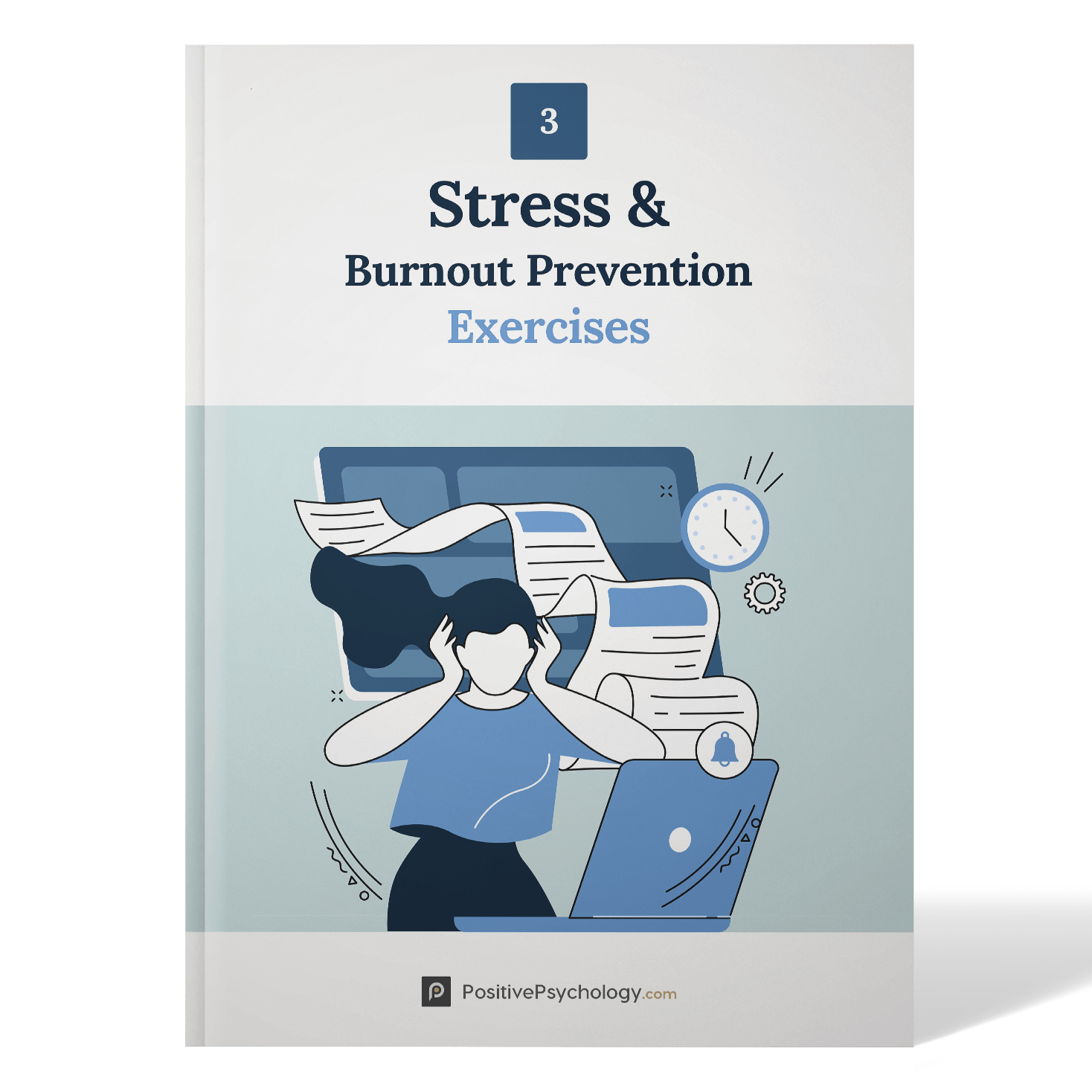


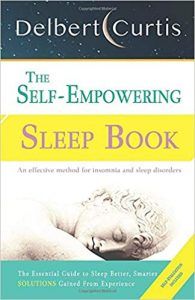
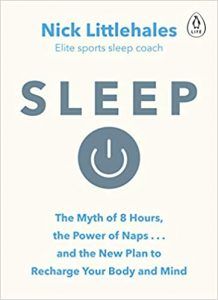
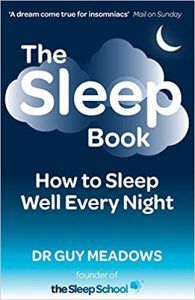
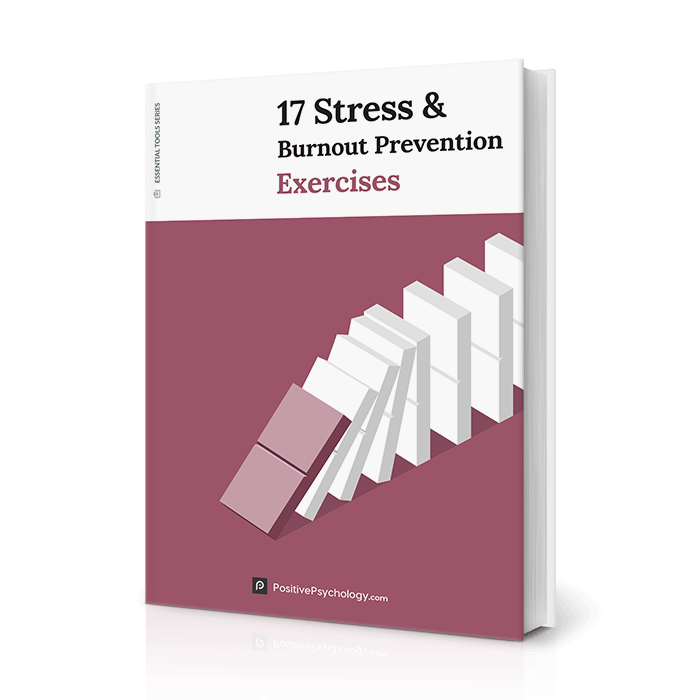




What our readers think
I took the Sleep Consultant Certification Program at the Instituteofpediatricsleep.com mentioned above by Nicole and could not be happier with the decision. The course is so comprehensive and does include lessons on starting your business for those that asked. Violet the director is also SO responsive it was like talking to a friend whenever I needed help after the course. Whatever business needs I had she helped me with it. The reason I chose this course over others is that there are actual instructors teaching the lessons and not just other sleep consultant. Not knocking sleep consultants but if I’m paying that price tag for the course, I want the appropriate people teaching it. IPSP is also pretty well-known in the sleep community so I know that my clients would trust me if I graduated from there. I did my research for quite some time before I finally enrolled with them so I hope this helps others because I know I was just as confused when I first started and like I said I couldn’t be happier. I have since left my 9-5 and doing this full-time. Best decision ever!
Hi. Are you reimbursed by any of the places or books you recommended?
Hi Brendan,
No, we’re not affiliated with any of the books or courses we recommend and don’t receive reimbursement.
– Nicole | Community Manager
I don’t know how I came across your article, but I am so glad I did. I am a Sleep Technologist with 20 years experience in the Sleep Medicine field and I had long been contemplating how to use my knowledge and skills to help others. I had long thought about something like Sleep Coaching but have never known how to get started. It seems like this would be a logical step for someone like me. I wouldn’t know how to get started, do these programs offer coaching in how to get your business started?
Hi Joanna,
Glad you’ve found this article useful! I’m aware that the course offered by the Spencer Institute includes… “a comprehensive program including detailed training on business set-up, marketing, personal branding, sales, social media marketing, online coaching/training, personal development training, video marketing, advertising, networking and much more…” which comes as a free add-on with the training.
Sounds like it might be what you’re looking for 🙂
Hope this helps!
– Nicole | Community Manager
Hi Joanna, most courses specialise in the sleep expertise with just a light touch on business. This makes sense because they are taught by sleep experts, not business experts.
I don’t have a course for certifying sleep coaches in general but I do have a certification for sleep coaching in the parenting niche and, as a business and success mentor, I include everything one needs to learn in order to grow a multi-six figure coaching business. I believe this is essential for new coaches with passion to make a difference and expertise to actually reach the people in the world who need them – You can’t make a difference if you don’t know business and marketing as well ; )
Hello Nicole, Many thanks for this great article. I’m creating my company that will be focused on awareness of the importance of relaxation and sleep hygiene via natural products for a healthy and balanced life. I would like to coach people also but I don’t have a medical background. Which course with certification can you recommend? I’m based in Paris.
Thanks in advance!
Hi Johana,
Glad you enjoyed the article! The training offered by the Spencer Institute strikes me as versatile, and they also have other training options that touch on some of the themes you’ve mentioned (e.g., life coaching with a holistic focus). So I’d probably start your search there by sending an email and letting them know a bit about your business offerings to see if their certification will match your needs 🙂
Another option I’d suggest sending an inquiry to is the Sleep Coach School.
Hope this helps!
– Nicole | Community Manager
Hi Nicole,
I’m wondering if you know any reliable courses/certificates for becoming a sleep coach for children (better degrees)? I would love to start from working with little ones.
Cheers,
Cora
Hi Cora,
There aren’t so many degree programs out there that specialize in sleep (one exception I’ve found is the University of North Carolina at Charlotte’s Neurodiagnostics and Sleep Science bachelor degree). Rather, university-educated experts in sleep science tend to have degrees in related fields such as psychology, health, and nursing. You can learn more here. You may also find this website to be useful for searching for Bachelor’s programs on sleep science.
I hope this helps!
– Nicole | Community Manager
Hi Cora,
Further to the above, I’ve just received some advice from Dr Latif — the author of this post — that might assist you! Her advice is that the best programs to become a sleep coach with children tend not to be university degrees:
I hope this will be helpful to you.
– Nicole | Community Manager
Hi Nicole, I would love for you to add my program to this list. We have trained over 200 women (and one man) with our globally successful sleep coach certification. I came across this page because I am also a certified positive psychology coach and use these principles in my teaching. My website is [sleepnanny dot co dot uk] (unsecure site) and my certification is [sleepnannyacademy dot com]
My overarching passion is to help these consultants to be wildly successful in their coaching businesses because that is how they make their biggest impact and difference in the world, serving the families who need them.
Hi all, great article. I would like to ask few questions regarding the courses so you can recommend the best for me. I work in an environment where a good number of people is in need of a Sleep Coach due to sleep depravation.
Which course would you recommend me to be fully certified Sleeping Coach and be able to help people around me?
Warm regards,
Nikola.
Hi Nikola,
Glad you enjoyed the article, and it’s great that you’re so keen to support those around you! My sense is that the course offered by the Spencer Institute will meet your needs best, as it includes formal certification (with CE credits) and includes components on sleep deprivation. If you get in touch with them via their contact form, you can find out the extent to which sleep deprivation (and its remedies) are covered in their course.
Hope this helps!
– Nicole | Community Manager
Hi I want more i formation about the course Become a sleep coach.
Thank you
Hi Mari,
Which specific course were you interested in? Let me know, and I’ll help point you in the right direction 🙂
– Nicole | Community Manager